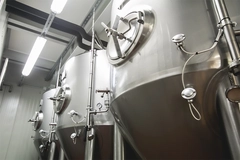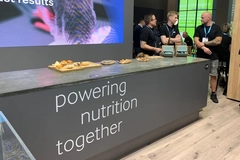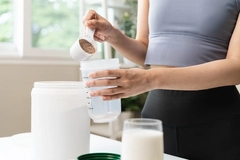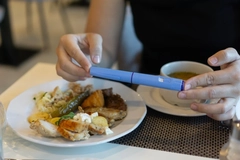
- Industry news
Industry news
- Category news
Category news
- Reports
- Key trends
- Multimedia
- Journal
- Events
- Suppliers
- Home
- Industry news
Industry news
- Category news
Category news
- Reports
- Key trends
- Multimedia
- Events
- Suppliers
Food Matters Live Rotterdam 2025: Hybrid proteins, GLP-1 and novel formats top themes on day one
Key takeaways
- Experts from Nestlé, IFF, and Innova Market Insights highlighted protein quality, GLP-1 developments, and the need for consumer education on blended and efficient protein sources.
- Beneo and Nedmag promoted hybrid meat and plant-based products, such as meatballs and processed meat alternatives, emphasizing convenience and affordability.
- Arborea, Duynie, and Standing Ovation presented novel proteins from microalgae, barley, and precision fermentation-derived casein, underscoring sustainability and circular economy benefits.

Food Matters Live Rotterdam opened in its buzzing confex format yesterday, blending conferences and presentations among pre-qualified food business professionals. Presentations, roundtables, and one-on-one discussions focused on what future foods would look like, bringing together consumer needs and sensory desires.
Industry spotlight speakers Midey González, innovation director of Health & Wellness at IFF (center) and Eline van der Beek, head of Nestlé Institute of Health Sciences (right), highlighted protein quality and developments in GLP-1 as some of the top themes.
“There is much more attention to protein quality from the scientific side. But this is difficult to translate for the consumer who thinks simply that more is better,” says Van der Beek.
“We know it doesn’t work like that. Your body has to be capable of doing something with that protein, and that’s where protein quality becomes an opportunity.”
She suggests that both higher health goals and sustainability targets can be met by blending proteins.
“The science tells us that the body can utilize protein more efficiently when it comes from different sources, but the consumer isn’t ready for products like that today,” stressing that more education is needed for consumers to understand these benefits.
Lu Ann Williams, global SVP of research at Innova Market Insights, spoke on the trends panel immediately following Van der Beek. She added to the conversation on education that consumers today are engaging with brands more than ever and are hungry for information about the food they consume. “It’s time that we recognize that it’s not about education, but a conversation with consumers.”
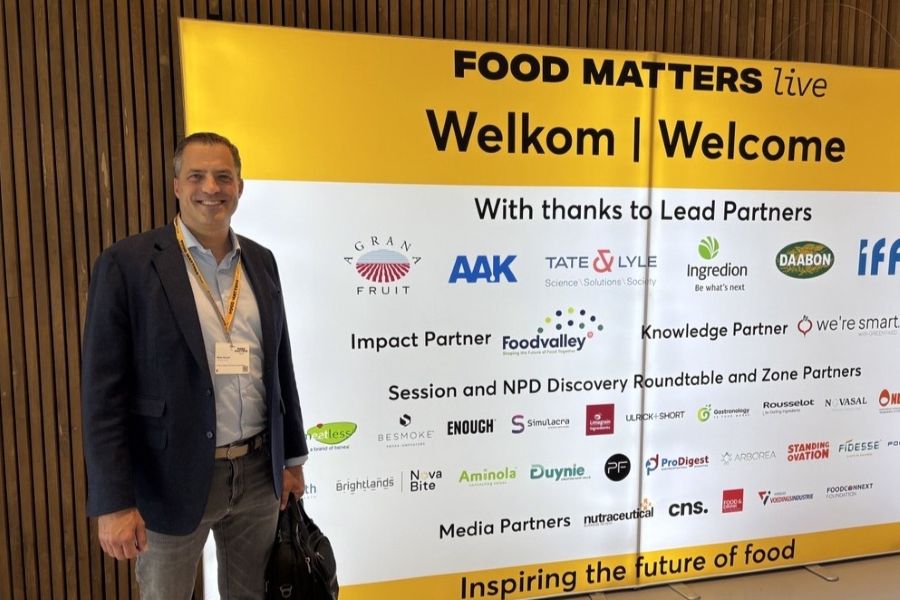 Niels Hower, managing director of Beneo's Meatless portfolio and executive board member at Beneo.Discussing hybrid protein formats
Niels Hower, managing director of Beneo's Meatless portfolio and executive board member at Beneo.Discussing hybrid protein formats
Niels Hower, head of Beneo’s Meatless portfolio, was also present at the event, sharing insights and success stories from the company’s move into hybrid products. These formats are generally not focused on health, although they can improve the Nutri-Score. They are centered on mass consumption, convenience, and stretching tightened supplies.
“If you really want to make a difference, you need to get into the mass market, and processed meat is still rising because people are looking for convenience. On top of that, beef production is reaching a ceiling, so the demand is there, but there is not enough supply.”
Hower says hybrid products featuring a combination of meat and plant-based products are launching in Europe about once a month. They can frequently be found on pizza toppings, sausage rolls, ready meals, and other time-saving foods.
Nedmag, a salt reduction company, is featuring a hybrid meatball at the event that is half beef and half soy, using its blended sodium and magnesium salt Novasal.
Duynie introduced sustainable barley protein derived from Heineken’s spent grains.Jetze Wijnia, senior food application technologist at Nedmag, notes that in addition to lowering the sodium content of foods and adding the positive ingredient magnesium, the blended salt has water-binding properties, making it especially valuable from a functional perspective.
Novel proteins prevail
New proteins were a top talking point in the NPD Discovery Zone.
British/Portuguese company Arborea is promoting its technology to grow microalgae for protein and natural food colorants with nothing but light and air. Large outdoor tubes create a controlled environment that “breathes in” C02 and releases oxygen. In this environment, microalgae can proliferate and be harvested daily, producing a complete protein with full amino acid profiles.
Dutch company Duynie showcased its barley protein, derived from spent grains at Heineken breweries. The ingredient is a sustainable plant-based protein that contributes to a circular economy. The fiber separated from the spent grains is returned to Heineken to be used as fuel for brewing more beer.
From France, precision fermentation company Standing Ovation is promoting its sustainably produced casein created by specially engineered microorganisms. The company is expected to receive self-affirmed GRAS status in the US early next year for its co-casein ingredient, a blend of caseins. To bring the ingredient to market, Standing Ovation is working, above all, with dairy companies with plant-based ingredient portfolios.
